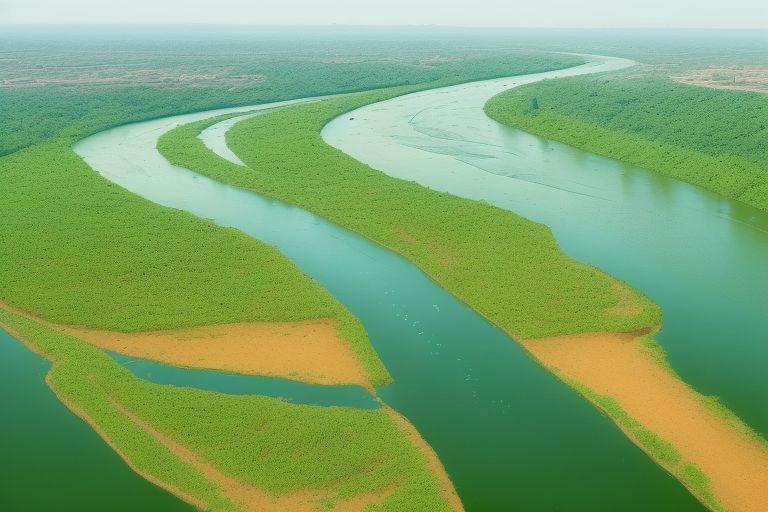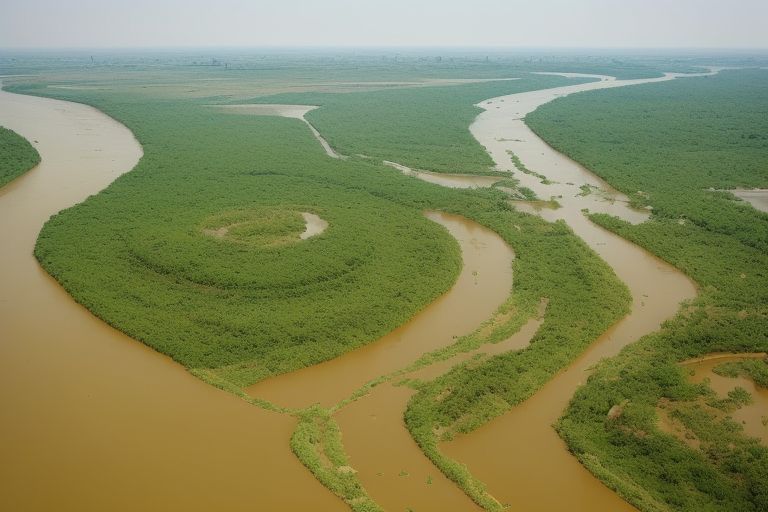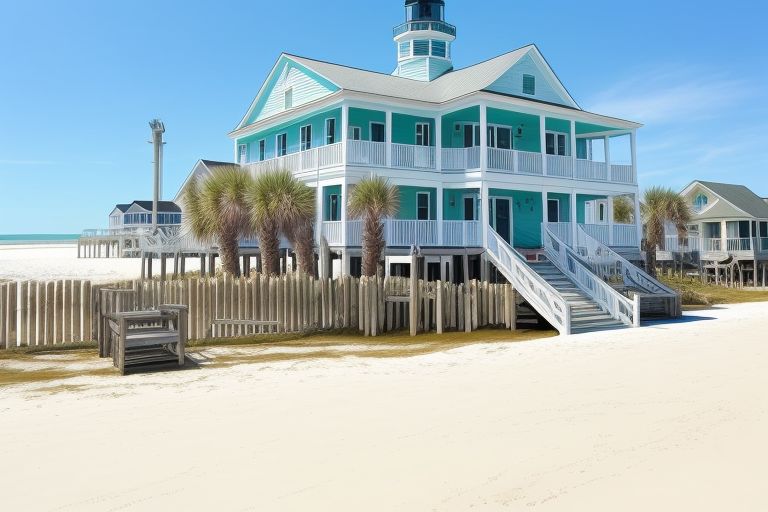
Famous rivers have shaped the history of civilizations, provided fresh water for people and animals, and created breathtaking landscapes. From the mighty Nile to the beautiful Seine, these rivers are more than just flowing water—they are lifelines that support life, trade, and culture. Every famous river has a unique story, connecting countries, people, and nature in amazing ways.
Some rivers are known for their incredible length, while others are famous for their deep history or rich ecosystems. Whether it’s the Amazon, which is home to rare wildlife, or the Ganges, which holds deep spiritual meaning, each river has something special to offer. Let’s explore some of the most famous rivers in the world and understand why they are so important.
Table of Contents
Why Are Famous Rivers Important for Life?
Famous rivers help people and nature in many ways. They provide drinking water, help grow food, and allow people to travel from one place to another. Without rivers, life on Earth would be very difficult.
- Water for Living: Many cities and villages get their fresh water from rivers. Without this, people and animals would not survive.
- Growing Food: Farmers use river water to grow crops like rice, wheat, and vegetables. This helps feed millions of people.
- Helping Trade and Travel: Boats and ships use rivers to transport goods, making trade easier between countries.
- Wildlife and Ecosystems: Rivers are home to many fish, birds, and plants that depend on fresh water to survive.
Without rivers, the world would be dry and lifeless. That’s why it is important to keep them clean and safe.

The Amazon River: A Giant Waterway Full of Life
The Amazon River is the largest river in the world by volume. It is found in South America and flows through Brazil, Peru, and Colombia. It is also one of the longest rivers, stretching about 6,993 kilometers.
This river is home to the Amazon Rainforest, which has thousands of plants, animals, and insects. Rare animals like pink river dolphins, jaguars, and anacondas live here. Many plants in the Amazon are also used to make medicines.
The Amazon is important because it produces 20% of the world’s oxygen. It is often called the “lungs of the Earth” because of its role in cleaning the air. However, deforestation and pollution are big problems, and people must protect this river.
Nile River: The Heart of Ancient Egypt
The Nile River is the longest river in the world, flowing through 11 countries in Africa. It is most famous for its role in ancient Egypt, where it helped the civilization grow thousands of years ago.
Farmers used the river to grow crops in the dry desert. Without the Nile, Egypt would not have been able to survive. It also helped people travel, trade goods, and build cities along its banks.
Today, millions of people still depend on the Nile for water and food. However, climate change and overuse of water are causing problems. Protecting this river is important for future generations.
Ganges River: The Sacred Waters of India
The Ganges River flows through India and Bangladesh and is one of the most sacred rivers in the world. Many people believe the river is holy and that its water has healing powers.
Every day, thousands of people visit the river to take a bath, pray, and perform religious ceremonies. The river is also home to many animals like the Ganges river dolphin and different species of fish.
Unfortunately, pollution has made the Ganges very dirty. Many efforts are being made to clean the river so that it remains pure for future generations.
Mississippi River: America’s Great Water Highway
The Mississippi River is one of the longest rivers in North America. It flows through ten U.S. states and is important for trade, farming, and travel.
Many boats and ships use this river to transport goods like food, oil, and coal. It is also a habitat for fish, birds, and other wildlife.
However, pollution from factories and farms has affected the river. People are working to clean it up and make it safe for future generations.
Famous Rivers and Their Impact on Civilization
Famous rivers have helped people build great cities, develop cultures, and grow strong economies. They have played a big role in human history.
- Ancient Cities: Many old civilizations started near rivers, like Egypt by the Nile and Mesopotamia by the Tigris and Euphrates.
- Trade and Transport: Boats have used rivers for trade for thousands of years, helping people exchange goods and ideas.
- Energy and Power: Some rivers are used to generate hydroelectric power, which provides electricity to homes and industries.
Even today, rivers continue to be an important part of life for people all over the world.
Can We Save Famous Rivers from Pollution?
Pollution is a big problem for many rivers. Garbage, chemicals, and waste from factories make the water dirty and unsafe for people and animals.
Ways to Protect Rivers:
- Reduce Plastic Waste: Stop throwing plastic into rivers and use reusable items instead.
- Clean Up Efforts: People should work together to remove trash from riverbanks.
- Stricter Laws: Governments should make strong rules to stop pollution from factories.
If we take care of our rivers today, future generations will enjoy clean and healthy water for years to come.

Conclusion
Famous rivers are more than just water flowing from one place to another. They are lifelines for humans, animals, and nature. Without these rivers, civilizations would not have grown, and life on Earth would be very different.
However, many famous rivers face pollution and other threats. It is our responsibility to keep them clean and safe. By working together, we can protect these rivers for the future and keep them flowing for generations to come.
FAQs
Q: What is the longest river in the world?
A: The Nile River is the longest river in the world, measuring about 6,650 kilometers.
Q: Why is the Amazon River important?
A: The Amazon River is important because it supports the Amazon Rainforest, which helps clean the air and provides a home for thousands of animals.
Q: How do people use rivers in daily life?
A: People use rivers for drinking water, farming, transportation, trade, and generating electricity.






